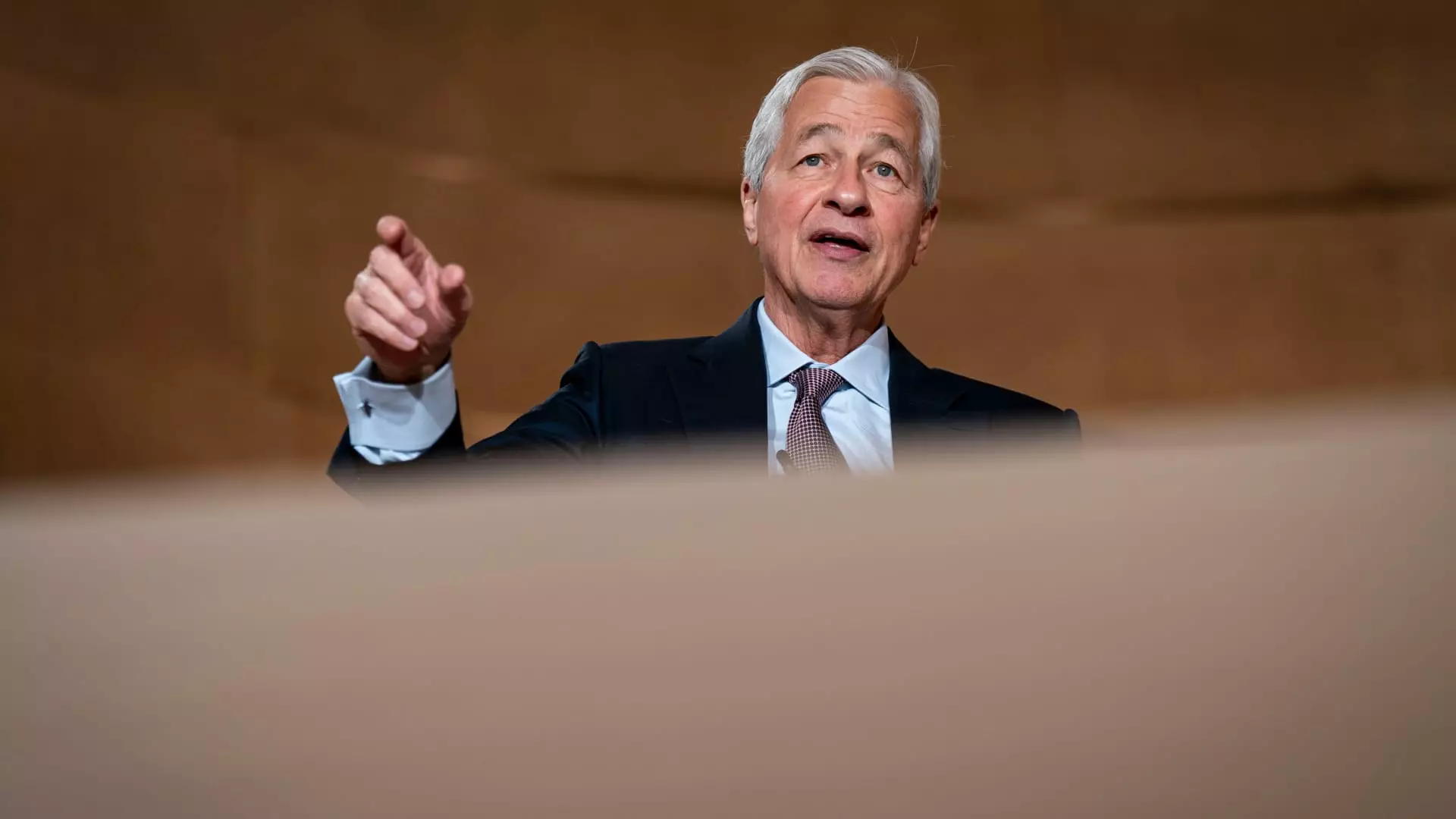In a striking revelation during JPMorgan Chase’s annual investor day, CEO Jamie Dimon pulled back the curtain on a landscape that many have glossed over: the grave risks associated with record-breaking U.S. deficits and escalating international tensions. His assertion that current market behaviors reflect a dangerous complacency should resonate deeply with investors and policymakers alike. With inflation tapering ominously on the horizon, Dimon’s critiques extend beyond mere economic indicators; they challenge the foundational narratives shaping our financial systems today.
Despite a recent recovery in stock market values since their lows in April, Dimon posits that this rebound is emblematic of a profound misunderstanding of the current economic climate. He labeled the prevailing confidence as “extraordinary complacency,” hinting at an underestimation of the repercussions of ongoing financial and geopolitical strains. Investors clinging to the notion that central banks can deftly navigate through these turbulent waters may be in for a rude awakening. Dimon’s skepticism about the capabilities of policymakers serves as a clarion call for a more nuanced understanding of economic realities—one that resists the allure of blind optimism.
The False Security of Central Bank Policies
At the heart of Dimon’s warnings lies a critique of central bank complacency. He asserts that the expectation for central bankers to salvage the economy amid rising deficits is flawed. The prevailing sentiment appears overly reliant on monetary policy as a panacea for systemic issues rooted in fiscal irresponsibility. The concept that central banks can effectively manage rising inflation and burgeoning debt is naive at best. Indeed, the façade of stability erected by monetary measures risks collapsing under pressure, leaving investors exposed to unexpectedly harsh realities.
As Moody’s recent downgrade of the U.S. credit rating underscores, markets cannot afford to ignore the significance of spiraling debt. Dimon’s perspectives bring a sobering dose of realism to the table, suggesting that optimism should not substitute for due diligence. The increasing indicators of unsustainable fiscal policies and trade tensions herald the potential for serious economic fallout. If not addressed decisively, the possibility of stagflation—a scenario where inflation coincides with stagnant growth—could emerge with a vengeance.
Impending Weight on Earnings Growth
Dimon raised pertinent questions about Wall Street’s earnings forecasts amidst this uncertainty. Current estimates for the S&P 500, having already taken a hit in the wake of trade policy shifts, are at risk of plummeting further as corporations reassess their guidance. His prediction of sagging earnings growth paints a stark picture for investors hoping for sustained market rallies. With such downward revisions looming, the impact on stock prices could be significant, leading to a recalibration of financial expectations.
Moreover, the notion that investment banking will experience a sharp decline in revenue is particularly alarming. Companies, now gripped by a “wait-and-see” mindset due to apprehensive market conditions, are likely to withdraw from acquisitions and other deals, thereby signaling a chilling effect on investment activity. This reactive posture contradicts the proactive strategies that typically foster growth, troubling signs for not only investment banks but for the overall health of the economy.
Dimon’s Leadership Timeline: A Shift in Focus?
While Dimon’s insights on economic threats are critical, his vision for leadership succession at JPMorgan Chase raises intriguing questions about the future direction of the bank. Speculation surrounding his eventual departure has long captivated Wall Street. With Dimon alerting stakeholders that he may remain in his role for only four more years, it’s time to consider the implications of his eventual exit. Will JPMorgan navigate the perilous waters ahead under new leadership, or will the ethos established by Dimon fade under less experienced oversight?
In light of increasing challenges—both market-related and strategic—the bank’s stability depends on a successor capable of synthesizing Dimon’s insight with a proactive mindset. With capable leaders like Marianne Lake positioning themselves as contenders, the focus will be on what kind of vision they will carry forward. Will they heed Dimon’s warning, prioritizing financial pragmatism over complacency, or will they further perpetuate a cycle of misguided optimism?
In a world fraught with uncertainty, Jamie Dimon’s stark warnings about the risks inherent in the current economic landscape should implore investors and decision-makers alike to critically evaluate their positions. Ignoring these insights may lead to dangerous repercussions as we navigate the complexities of the modern economic arena.

